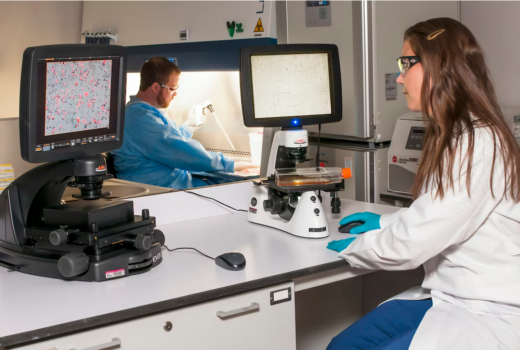USA zet fors in op bèta/tech promotie
The America Creating Opportunities to Meaningfully Promote Excellence in Technology, Education and Science Act (COMPETES), makes improvements to math and science education and strengthens the nation’s commitment to scientific research.
The Act is based upon the recommendations of the widely-regarded 2005 National Academies’ report, “Rising Above the Gathering Storm.” That report, requested by a bipartisan, bicameral group of lawmakers, found that the U.S. stands to lose its competitive edge over other nations without action.
Among its findings: in 1999, 68 percent of U.S. 8th grade students received math instruction from a teacher who lacked a degree or certification in the field. In 2000, 93 percent of students in grades 5-9 received physical science instruction from teachers who lacked a degree or certification in the physical sciences (chemistry, geology, general science or physics).
In high schools, about 30 percent of math students and 60 percent of physical science students face the same fact. The numbers are worse for low-income students, where 70 percent of their math teachers majored in something other than math in college.
To address these concerns, the COMPETES Act:
-Authorizes a total of $33.6 billion dollars over fiscal years 2008-2010 for science, technology, engineering and math (STEM) education programs across the federal government
-Authorizes multiple grant programs at various federal agencies to help educate current and future teachers in the areas of science and math education
– Creates the Technology Innovation Program (TIP) at the National Institute of Standards and Technology (NIST)
-Establishes the Advanced Research Projects Agency – Energy (ARPA-E), designed to engage in high-risk, high reward energy research under the Department of Energy
-And keeps budgets for research programs at the National Science Foundation (NSF), National Institute of Standards and Technology (NIST) and the Department of Energy (DOE) Office of Science on a path to doubling within the near term.
Meest Gelezen
Vrouwen houden universiteit draaiende, maar krijgen daarvoor geen waardering
Hbo-docent wil wel rolmodel zijn, maar niet eigen moreel kompas opdringen
Wederom intimidatie van journalisten door universiteit, nu in Delft
‘Waarom het nu niet lukt om medezeggenschap in hbo te versterken’
‘Sluijsmans et al. slaan de plank volledig mis’


